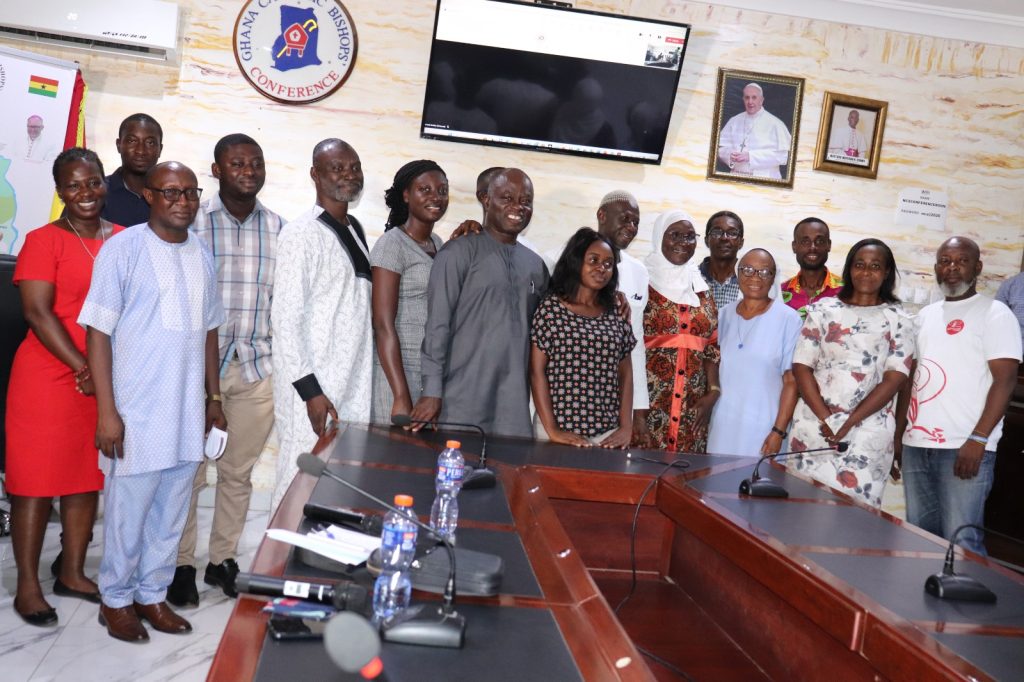By Iddi Yire
Accra, Oct 2, GNA – The Reverend Father Clement Kwasi Adjei, the General Secretary of the Ghana Catholic Bishops’ Conference (GCBC), has lauded the crucial role of Faith-Based Institutions and the Media in securing inclusive economic recovery for the country.
He said Ghanaians were embarking on the journey of securing an inclusive economic recovery and debt relief, knowing that the collaborative efforts of faith-based institutions and the media held the potential to transform lives and provide hope for a brighter future.
Rev Adjei made the commendation in his remarks during an advocacy workshop for Faith-Based Institutions and news Editors and reporters.
The workshop, which was organized by Caritas Ghana in collaboration with Caritas Africa and Jubilee USA Network, was on the theme: “The Role of FBIs and the Media in Securing an Inclusive Economic Recovery and Debt Relief.”
The objective of the workshop was to foster collaboration and networking among FBIs and media organizations to share best practices, experiences, and lessons learned to develop a common strategy for addressing economic recovery and debt relief.
Rev Adjei said global and national economies were still dealing with the effects of unprecedented challenges such as the COVID-19 pandemic, which had brought economic devastation in various sectors and deepened vulnerabilities.
“As we strive to rebuild and recover, it is paramount that we adopt an inclusive approach that does not leave anyone behind,” he said.
“This is where the intersection of FBIs and the media becomes significant.”
He noted that FBIs had long played a vital role in uplifting societies and addressing the needs of the most vulnerable groups, adding that they possessed a unique ability to instill hope, foster unity, and provide support in times of crisis.
Rev Adjei said their strong networks, values, and principles could serve as beacons of light, guiding towards a fair and just economic recovery.
He said by leveraging their resources and influence, FBIs could help create an environment where everyone had equal access to opportunities for growth and prosperity.

He said conversely, the media played a significant role in shaping public discourse and influencing societal norms; stating that they could amplify voices, shed light on pressing issues, and held those in power accountable.
He said in securing an inclusive economic recovery and debt relief, the media could utilise its platform to provide accurate information, raise awareness about the challenges faced by different communities, and advocate for equitable and just policies.
He underscored the need to bridge the gap between those in need and those with the power to effect change through responsible journalism.
He said by understanding the media landscape and its influence, they could harness its potential to push for policies and initiatives that prioritized equity and justice.
Mr Thomas Awiapo, the Executive Director, Caritas Ghana, said the purpose of their gathering was because they cared for the good of mankind, especially, the good of the most
vulnerable in society; underscoring that the enemy of the common good of mankind was greed.
He noted that the nation loses more money to corruption than what it was asking for in the IMF bailout.
“And this corruption and greed lead us to poverty and more economic woes,” he stated.
He appealed to Ghanaians to intensify their efforts towards eliminating corruption and greed; as part of measures aimed at creating a just society for all people.
GNA